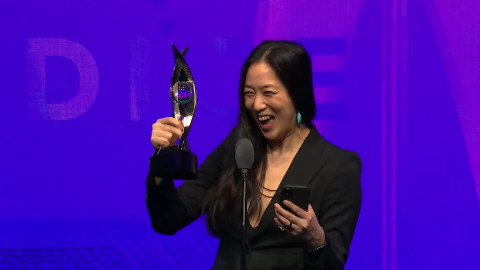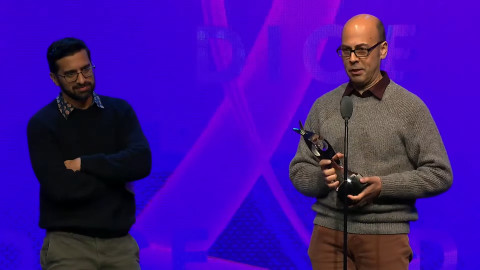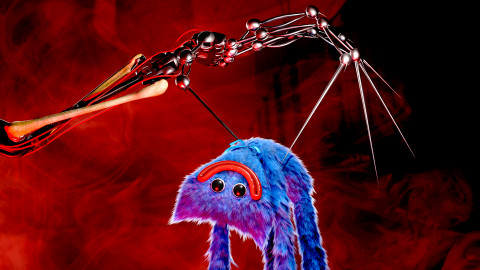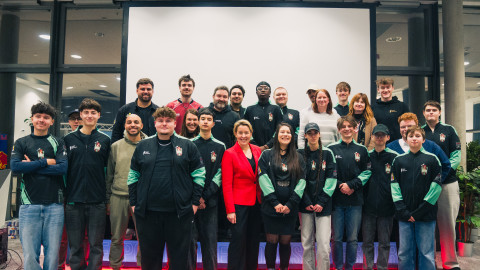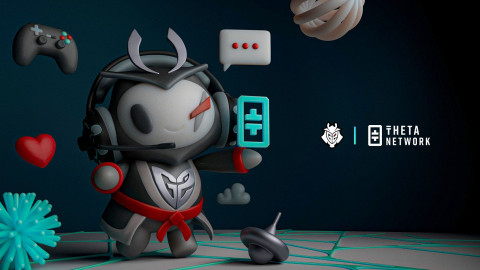
For years preceding Metagame’s release, everyone always knew what Travis “Samox” Beauchamp was working on. After the unbelievable success of The Smash Brothers — Samox’s first documentary series detailing the history of Super Smash Bros. Melee esports — everyone was always excited for his next project to blow away the world once more.
Upon Metagame's release, though, the reaction was much less positive. Though still seen as a good series, it didn’t receive the universal praise like that of its predecessor. Inven Global had the chance to sit down with Samox and get his takes on Metagame’s reception, his future in the Smash scene, and filmmaking as a whole
It’s been a good deal of time now that Metagame has been out. Obviously, there were some mixed reactions to the series when it first came out, but how do you look at it now? How do you compare it with The Smash Brothers?
It certainly seemed like a different reaction at launch than the one The Smash Brothers received, right? For me, that definitely felt like a failure. I mean, The Smash Brothers was so universally liked that anything less than that of course felt like I had failed. With some time and space between me and the original premiere, I can say that I feel like a lot of the negative voices drowned out the positive ones; that’s what Twitter is there for though, so no surprises there. [laughs]
Obviously, there were some valid criticisms and ones that actually ended up making it a better series. You know, The Smash Brothers was this fiery passion project that caught lightning in a bottle. Metagame was a much more drawn-out process. I think that’s reflected in how they work too — you can feel a lot of the rougher edges in TSB where Metagame has much more polish. I love them both but in very different ways.
"I do blame Twitter for amplifying people’s in-the-moment thoughts and driving narratives before the [Metagame] series was even done being aired."
One reason for the less positive reaction I think was the difference in audience. I’d argue the majority of watchers for The Smash Brothers were people just getting into Melee, whereas for Metagame, you had far more seasoned viewers. On your end, do you think the two documentaries had different audiences in mind?
That’s definitely a possibility, though to be completely honest, I do blame Twitter for amplifying people’s in-the-moment thoughts and driving narratives before the series was even done being aired. This sort of sets the tone for things, especially if they are opinions coming from people with huge followings. For example, Mango had problems with his portrayal in both documentaries, but his criticisms were amplified way more in Metagame because of Twitter. He later ended up pulling back a lot of this criticism following the doc’s conclusion. I have a feeling that if Twitter had been more prominent back when TSB was aired (or if TSB aired today) you’d see a mixed reaction to it as well.
Your point though is definitely spot on: I think both docs had different audiences in mind. Since it would be a lot of people’s first introduction to competitive Melee, I wanted TSB to be particularly accessible; with Metagame, I felt like I could explore a bit more of the gameplay aspects as well. But both aim to please on a similar front when it comes to human stories. As much as I could, I wanted to put the human element front and center in both documentaries.
That’s actually something I wanted to touch on. You’ve made some of the only well-received documentaries in esports. Even with enormous companies backing other projects, it seems very hard for others to create compelling work. Personally, what do you think sets your work apart in comparison to other esports documentaries? I’d argue part of it is the human element like you were saying, but what else is there in your opinion?
Well… it’s really hard. [laughs] I’d say it’s one of the hardest things to do in all narrative media is to produce truly compelling stories — especially nowadays when everyone is so media savvy and people’s eyeballs can be pulled in a million different directions. I hesitate to diagnose my own work’s strengths because I’m not an unbiased observer, but I think part of its appeal is a certain… “authenticity”? I’m not sure if that word entirely captures it, but I think people are more willing to buy into your story if they feel like it’s coming from a gooey, human center rather than a corporate PR stamp factory. Not to say that “corporate = bad” but just that people trust people way more than they trust big companies — probably with good reason.
"I think it’ll be a while before I take another plunge into Melee, at least in terms of a huge project like TSB or Metagame."
Do you think there’s anything about the Smash community storytelling-wise that is different from other esports scenes?
I think you can make compelling stories about any esports scene, to be honest, but I’d be lying if I didn’t say that Melee’s history has been particularly engrossing. I’m paraphrasing Wife, but it’s truly amazing that the Five Gods are each wildly different people; we could be in a universe where those top five people are just little variations on the classic nerd stereotype — but instead, we have these incredibly unique personalities with their own varied stories to tell. You can’t make that up; the reality has to be fascinating in the first place, otherwise, you’re sunk.
I'd add that the game itself (and the metagame) has this bizarre history of innovation that goes beyond the creator's original designs. Everything about Melee does make it one of a kind.
What other games most stand out to you that you would like to cover in the future, and why?
There are a lot of games that scream to me that they need their stories told, but two that stand out are Counter-Strike and Starcraft: Brood War. From what I know about their competitive histories already, they represent the genesis of modern esports as we know it — particularly Brood War with its wider cultural significance to the South Korean people at the time. I would really love to see their stories told in a way that does justice to what they are.
One of the biggest adjustments to the project was turning it from a feature to a series. At what point did you realize the story you were going for wouldn’t work as a feature? Is there anything that could’ve been done to stay on the original route?
Yeah, I was pretty dead set on making a feature-length film for the second go-round rather than another series; I had already made a series and I wanted to try my hand at a different format. However, after I had completed editing the first act of the film, I realized I had a problem. The first act itself was actually pretty solid if I remember correctly, but I looked at the footage I had remaining and I saw two things: #1, there was no way I could include all the subplots I wanted to include if I tried to smoosh it all into a film. And #2 — If I did exclude those subplots, the footage I had left didn’t make for the kind of compelling story I wanted to tell. I realized then that the footage was telling me how it wanted to be used and although I wasted a good 6 to 8 months to come to that realization, I’m glad I did. The Metagame “movie” would not have worked at all.
I will note though, that if I'd had a larger team with me during production, that would be a different story.
You’ve been knee-deep in Smash Brothers film projects for about a decade now. Do you see yourself making any more projects soon? Would you want to make a feature film?
It is kind of bizarre that I’ve been tied to this one particular game in my creative work so far. [laughs] I think it’ll be a while before I take another plunge into Melee, at least in terms of a huge project like TSB or Metagame. I have a million and one ideas I want to pursue and (perhaps not surprisingly) a lot of them involve gaming or film work to some degree, so don’t be surprised if you see stuff like that coming from me in the near future. As far as things like feature films, that might be more of a ways off — but I’d never say never.
What about filmmaking outside of esports entirely? Do you have any plans for projects outside our little world?
I got my start in filmmaking — not esports or journalism — so I for sure have grand designs in my head for all sorts of films (and fictional series) I’d love to see made. I think my problem right now is I have to start narrowing things down. [laughs] Given that, I can’t really specify on what projects I’ll be getting into — just know I’ve got a big ole bag of Samox Brand Original Narratives™ that I am aching to let loose in one form or another.

Everyone always asks you what you would change in Metagame. Despite universal acclaim, is there anything you’d change about The Smash Brothers?
Good question. I personally have an aversion to going back and tinkering with things that I’ve released, at least in huge ways. As a creator, you make decisions with the media you have to tell the best story you can and most of the time I think re-visiting things is just a recipe for self-indulgence or unnecessary changes (e.g. Lucas with the Original Trilogy of Star Wars). With that in mind, I don’t think I’d change any of TSB — save for some bleeping of words that we’ve thankfully left behind as a community.
"[Melee] has this bizarre history of innovation that goes beyond the creator's original designs. Everything about Melee does make it one of a kind."
Is there anything in Metagame or The Smash Brothers you wanted to cover that just didn’t work out?
Oh definitely. The Smash Brothers originally was going to include interviews with the original “John” (as in, “No Johns”) as well as an interview with the Arizona Falco legend “Forward” (full tag “Forward B” for his habit of dashing off the ledge and killing himself). Neither happened in large part for budgetary reasons. In contrast, Metagame pretty much covered everything I wanted to cover, though there are so many stories that could’ve been included and just weren’t due to time limitations in the narrative.
Thanks so much for taking the time to talk with us Samox! Is there anything you’d like to share or say?
Anytime! Appreciate the chance to talk. I don’t have much else to add, but if you’re interested in my work you can follow me on social media. Twitter is @_samox_
I also have a Patreon for those who want behind-the-scenes stuff or for those who want to help keep me in ramen while I toil lol. Much love.
-

I write. I rap. I run. That’s pretty much it.
Sort by:
Comments :0

